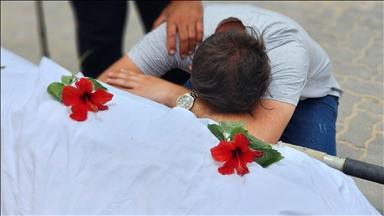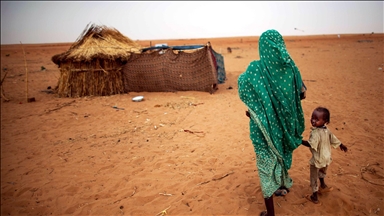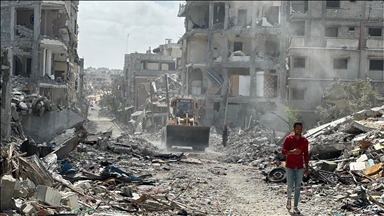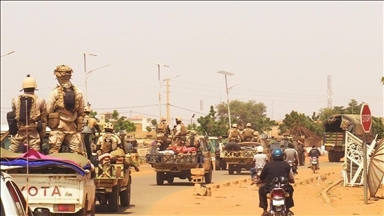U.N. demands protection for Uganda rights defenders
Special rapporteur on the situation of human rights defenders Margaret Ssekaggya told AA Ugandans face many challanges
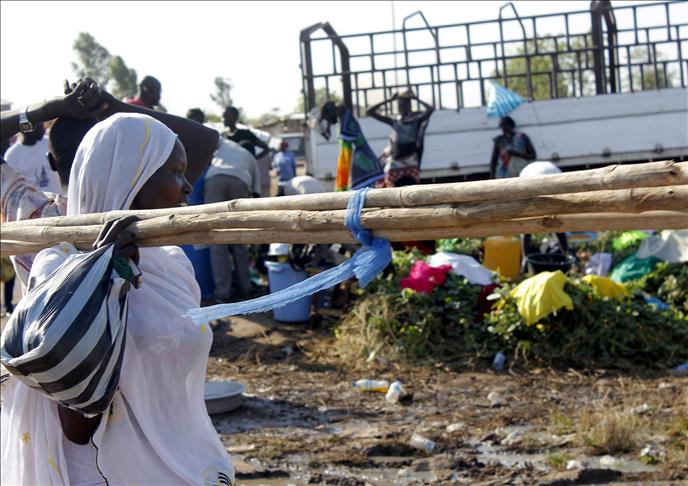
by Halima Athumani
KAMPALA
The United Nations special rapporteur on the situation of human rights defenders has urged the Ugandan authorities to improve the environment to allow local rights defenders to do their work.
"There are issues of freedom of assembly, freedom of expression and arrests and detention of defenders," Margaret Ssekaggya told Anadolu Agency in an interview in Kampala.
"Sometimes they face confrontations with state agents, resident district commissioners and sometimes from the community itself," she added.
"We are bringing in these issues to show that it's not so easy for defenders; their work is a challenge," said Ssekaggya.
According to research carried out last year by the Human Rights Center, commonly violated rights include the right to freedom of assembly, freedom of opinion and expression, the right to access funding, an effective remedy to complaints, access to and communication with international bodies, and the right to be protected.
The center cited Public Order Management Act 2013, which restricts freedom of assembly and association.
According to rights activists, the law presents an undue burden by making it necessary to obtain authorization to peacefully assemble through bureaucratic and unnecessary procedures.
Uganda's police apparatus, which is mandated with implementing the law, has prevented many public assemblies by local human rights defenders and opposition politicians.
But Erasmus Twaruhukwa, the police director for human rights and legal services, argues that most people who criticize the law simply haven't read it.
"The law has just been misunderstood," he told AA. "If you read the provisions, they are very clear. It has nothing to do with limiting freedoms; it only regulates how you express that right of expression, association and assembly."
Other laws seen as inhibitive include the Access to Information Act of 2005, which prohibits civil society organizations from getting information on controversial issues like corruption.
The "Black Monday" campaign, an anti-corruption social movement, had its newsletters confiscated, while activists distributing them were arrested.
Police charged them with spreading harmful propaganda and possessing prohibited publications with intention of inciting violence.
"This law hampers our ability to hold government accountable on its obligations," said Richard Ssewakiryanga, a prominent civil society figure and executive director of the Uganda National NGO Platform, the driving force behind the Black Monday campaign.
-Challenges-
Another law directly affecting civil society is the NGO Registration Amendment Act of 2006, which stipulates that all NGOs must declare their objectives as a precondition for registration.
"The registration process is bureaucratic," lamented Ssewakiryanga.
This is made worse by a mandatory periodic registration, especially for community-based organizations at the district level, which are subject to the discretionary powers of the Resident District commissioners.
Lars Christensen, head of programs at the Democratic Governance Facility (DGF), noted that new laws such as the Anti-Homosexuality Act represent a significant challenge for rights defenders.
"It's important that human rights defenders study the new laws that have come and try to assess the implications," he told AA.
"They also need to question what they actually mean and try to ensure that the provision of the constitution are defended," Christensen said.
DGF is a multi-donor funding mechanism supported by the governments of Austria, Denmark, the Netherlands, Norway, Sweden, the United Kingdom and the European Union.
The U.N. rapporteur highlighted the government's responsibility to protect rights defenders.
"Government must ensure access to justice, prompt and quick investigations of issues, strong institutions like the police and judiciary in order to work effectively," Ssekaggya said.
englishnews@aa.com.tr
Anadolu Agency website contains only a portion of the news stories offered to subscribers in the AA News Broadcasting System (HAS), and in summarized form. Please contact us for subscription options.


